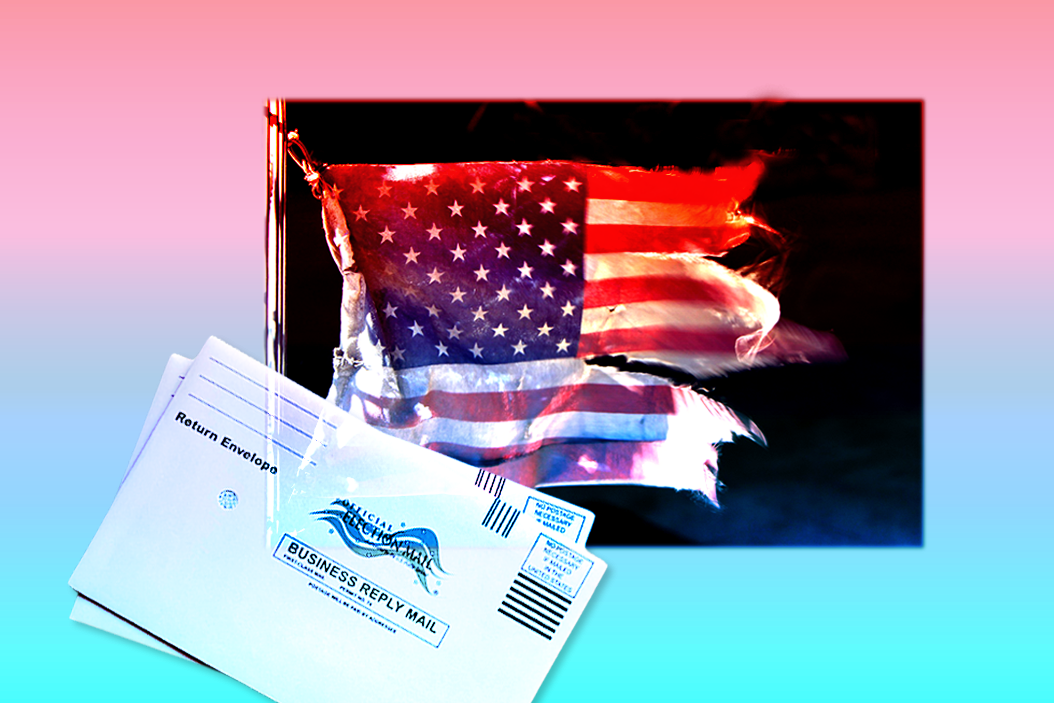November 04, 2020
We don't have a winner. At this hour (7:30am Wednesday), we don't yet know who will win the US presidential election, or which party will hold majority control of the next Senate. The result in a number of crucial states remains very much in doubt. It might take days for a final result, and lawyers for President Trump are already contesting the outcome in court.
So, we'll focus this morning on what we know. The next US president, Donald Trump or Joe Biden, will lead a nation with some big challenges, but also some important advantages.
American democracy has suffered damage in recent years. The country remains deeply polarized. A narrow-margin presidential outcome and President Trump's unsubstantiated charges of voter fraud and demand for a halt to the vote count certainly won't change that. There's been a sharp deterioration in US public confidence in political leaders, lawmakers, and the media. Partisan responses to the pandemic have undermined faith in public health officials and expert institutions like the Centers for Disease Control.
The police murder of a Black man in May has further poisoned the attitudes of many citizens toward law enforcement, and the protests and violence that followed have heightened racial tensions and raised questions about the proper role of federal law enforcement — and even the military. The election has raised partisan doubts about the court system, including the integrity of vote-counting.
None of this is entirely new. Those of us old enough to remember Vietnam, Watergate, and the scandals of the Clinton presidency have seen public cynicism and political anger before. Many Americans on the right have mistrusted the media for decades, and many on the left have long vented anger about police. But the "filter bubble" in which both conservative and liberal Americans get their own sets of news and information about the world has sharply exacerbated conflicting views of American life. And today, unlike in the past, there are almost no domestic political issues on which Democrats and Republicans find common ground.
Still, as a global player, the United States enjoys big and lasting advantages. It remains the sole global superpower, the one country that can project political, economic, and military power into every region of the world. Energy production innovations over the past decade have made it the world's top oil producer. The US is the world's number one food exporter and ranks third in the world, behind Singapore and Ireland, for "food security."
The dollar's continued dominance as the world's lead reserve currency allows the US to borrow and spend like no other country. Most of the world's lead information technology companies are American, and the US is home to most of the startups that will drive innovation in artificial intelligence, cloud computing, autonomous vehicles, and other cutting-edge technologies.
But the health of a democracy depends on public confidence in the political system and its institutions. The next president and Congress will have to do more than manage the next wave of the pandemic, help put Americans back to work, handle increasingly complex relations with China, promote greater equality of opportunity, and prepare the country to face future crises from unexpected directions. They'll also need to take actions that somehow persuade more Americans on the left and right that they live in the same country, and have more in common than they realize.
This morning, that hope looks more distant than it did 24 hours ago.More For You
- YouTube
At the 62nd Munich Security Conference in Munich, GZERO’s Tony Maciulis spoke with Benedikt Franke, Vice Chairman and CEO of the Munich Security Conference, to discuss whether the post-1945 global order is under strain or already unraveling.
Most Popular
- YouTube
Zelensky agrees: elections matter #PUPPETREGIME
As more small businesses move sales, payments, and customer relationships online, they unlock new opportunities, but they also become easier targets for cyber-criminals and other threat actors.
TOKYO, JAPAN - FEBRUARY 8: Japan's Prime Minister Sanae Takaichi, leader of the ruling Liberal Democratic Party (LDP), places a red paper rose on the name of an elected candidate at the LDP headquarters on general election day on February 08, 2026 in Tokyo, Japan. Voters across the country headed to polls today as Japan's Lower House election was held.
Photo by Kim Kyung-Hoon - Pool/Getty Images
When Japanese Prime Minister Sanae Takaichi called snap elections last month, it was a big gamble. Holding a winter election just four months into her tenure with no real policy record to run on?
© 2025 GZERO Media. All Rights Reserved | A Eurasia Group media company.
